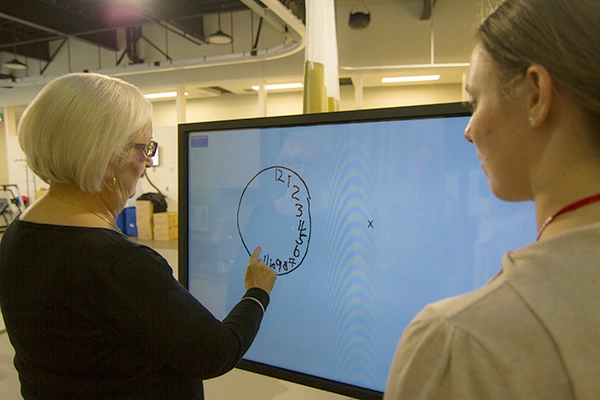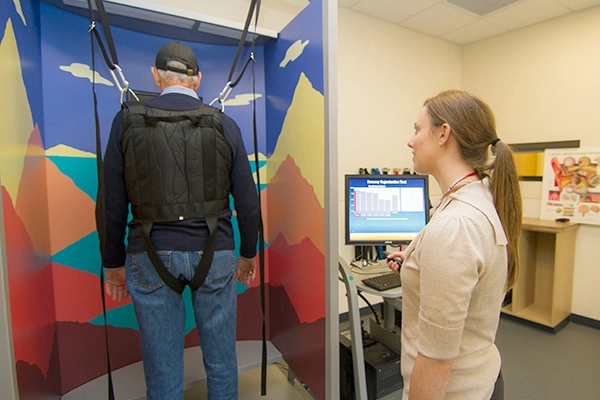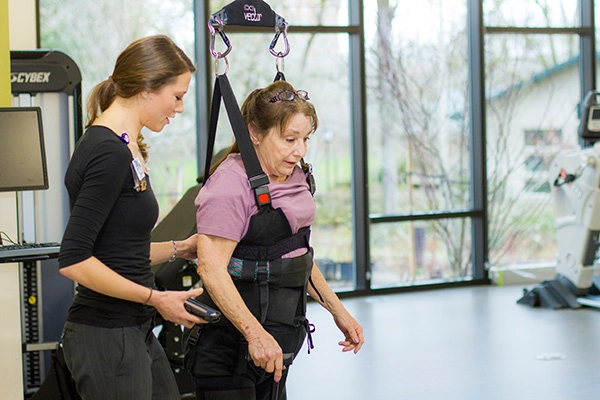Balance and vestibular therapy
Common symptoms of balance and vestibular (inner ear) conditions include:
- Dizziness or vertigo
- Ringing in the ear or hearing loss
- Unsteadiness
- Falls
- Nausea
- Difficulty walking
These may be the result of:
- Benign paroxysmal positional vertigo (BPPV)
- Concussion
- Meniere’s disease
- Labyrinthitis
- Vestibular neuritis
- Chronic vestibulopathy
- Disequilibrium of aging
- Peripheral neuropathy
- Various neurological disorders resulting in balance/dizziness problems
- Parkinson’s disease
- History of falls
Our vestibular therapists assess and diagnose your symptoms by evaluating the three key areas that affect balance: visual input, sensation in the bottom of the feet and signals from the inner ear.
Therapy possibilities
In specific cases, dizziness can be resolved simply by putting your head through a specific set of motions that return the balance mechanism in the ear to its proper state—otherwise known as the Epley maneuver or canalith repositioning procedure.
Patients with this type of dizziness are often cured of their symptoms after a few appointments.
For patients with more complex balance and vestibular conditions, we have some of the most specialized equipment and training in the region.
If you would like to try balance and vestibular therapy at Salem Health Rehabilitation Center, ask your primary care doctor for a referral. For more information, call the center at 503-561-5986.
The SMART EquiTest System provides a computerized balance assessment. Through this technology, we can identify and treat dizziness, motion sickness, loss of balance and falling more precisely.

The Bioness integrated therapy system (BITS) is designed to evaluate and improve disabilities and improve performance in competitive athletes.

The Vector Gait and Safety System frees our therapists to concentrate on the patient’s movement without worrying about preventing them from falling.